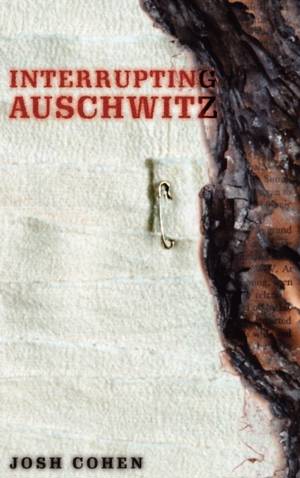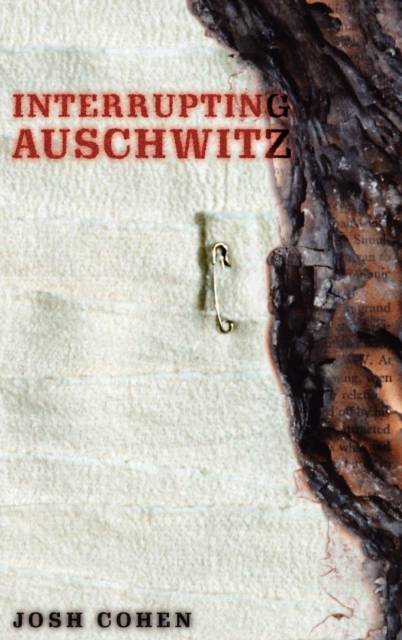
Je cadeautjes zeker op tijd in huis hebben voor de feestdagen? Kom langs in onze winkels en vind het perfecte geschenk!
- Afhalen na 1 uur in een winkel met voorraad
- Gratis thuislevering in België vanaf € 30
- Ruim aanbod met 7 miljoen producten
Je cadeautjes zeker op tijd in huis hebben voor de feestdagen? Kom langs in onze winkels en vind het perfecte geschenk!
- Afhalen na 1 uur in een winkel met voorraad
- Gratis thuislevering in België vanaf € 30
- Ruim aanbod met 7 miljoen producten
Zoeken
€ 449,45
+ 898 punten
Uitvoering
Omschrijving
Hitler, wrote Theodor Adorno, imposed a new categorical imperative on humankind...to arrange thoughts and actions so that Auschwitz will not repeat itself. Interrupting Auschwitz argues that what gives this imperative its philosophical force and ethical urgency is the very impossibility of fulfilling it. But rather than being cause for despair, this failure offers a renewed conception of the tasks of thought and action. Precisely because the imperative cannot be fulfilled, it places thought in a state of perpetual incompletion, whereby our responsibility is never at an end and redemption is always interrupted.Josh Cohen argues that both Adorno's own writings on art after Auschwitz and Emmanuel Levinas' interpretations of Judaism reveal both thinkers as impelled by this logic of interruption, by a passionate refusal to bring thought to a point of completion. The analysis of their motifs of art and religion are brought together in a final chapter on the poet-philosopher Edmond JabFs.PHILOSOPHY
Specificaties
Betrokkenen
- Auteur(s):
- Uitgeverij:
Inhoud
- Aantal bladzijden:
- 186
- Taal:
- Engels
Eigenschappen
- Productcode (EAN):
- 9780826455512
- Verschijningsdatum:
- 31/03/2003
- Uitvoering:
- Hardcover
- Formaat:
- Genaaid
- Afmetingen:
- 156 mm x 234 mm
- Gewicht:
- 439 g

Alleen bij Standaard Boekhandel
+ 898 punten op je klantenkaart van Standaard Boekhandel
Beoordelingen
We publiceren alleen reviews die voldoen aan de voorwaarden voor reviews. Bekijk onze voorwaarden voor reviews.









